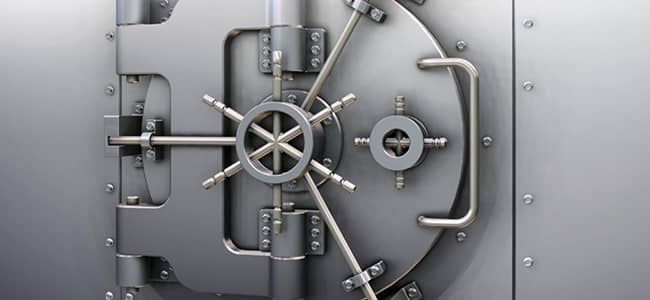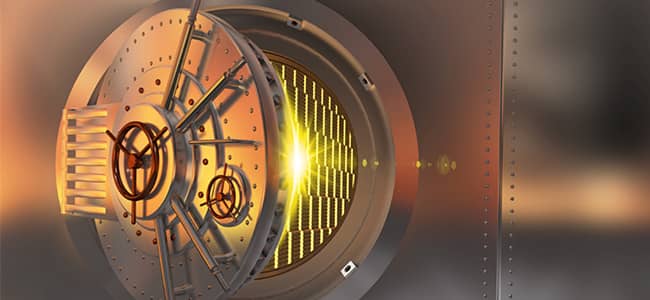IRA eligible precious metals include specific types of gold, silver, platinum and palladium that meet the Internal Revenue Service (IRS) requirements for inclusion in a retirement account. According to IRC Section 408(m)(3), only metals that meet a minimum fineness standard are allowed: gold must be at least 99.5% pure, silver 99.9% and platinum and palladium 99.95%. IRA-eligible precious metals must be stored securely with an approved custodian. This ensures compliance with regulations and protects the physical assets within the individual retirement account (IRA).

Why Consider Precious Metals for Your IRA?
Adding precious metals to your IRA offers several benefits, making them a valuable component of a retirement portfolio. Precious metals provide diversification, helping reduce risk by balancing traditional investments such as stocks, mutual funds, and bonds. They also serve as a hedge against market volatility and inflation, maintaining value even when other assets fluctuate. This stability can help protect your savings during economic downturns and ensure long-term financial security. Including precious metals in your IRA enhances your portfolio’s resilience, providing growth potential while offering a safe haven for your investments.

IRS Requirements for IRA-Eligible Precious Metals in IRAs
The IRS has specific rules for determining whether precious metals are eligible for inclusion in an IRA. The primary requirement is the minimum fineness standard, which ensures that only high-quality, investment-grade metals are used within retirement accounts. IRA-eligible precious metals include gold coins, silver coins, and bullion bars that meet purity requirements.
For compliance, the metals must be stored in a secure facility such as those provided by the International Depository Services Group and managed by an IRS-approved trustee or custodian. These rules help protect the integrity of precious metals IRAs and ensure that tax-deferred benefits are maintained.

Types of Precious Metals Eligible for IRAs
Several types of physical precious metals qualify for an IRA, including gold, silver, platinum, and palladium products that meet the IRS’s stringent requirements.
Gold
IRA-eligible gold products must have a minimum purity of 99.5%. Approved coins include the Canadian Maple Leaf, British Gold Britannia, Austrian Gold Philharmonic, Australian Gold Kangaroo, and American Buffalo bullion coin. The only exception to the minimum purity rule is the popular American Gold Eagle, which is 91.67% pure. Gold bullion bars of at least 99.5% purity from accredited refiners are also permitted.
Silver
IRA-eligible silver products must meet a higher standard, with a minimum purity of 99.9%. Popular coins such as the American Silver Eagle, Canadian Maple Leaf, Austrian Vienna Philharmonic, and Australian Kookaburra qualify. Silver bars, whether 1-ounce, 10-ounce, or 100-ounce, are allowed if they meet the required fineness.
Platinum and Palladium
IRA eligible platinum and palladium must have a minimum purity of 99.95% to be eligible. Coins like the American Platinum Eagle, Canadian Maple Leaf, and Australian Koala qualify. Platinum and palladium bullion bars meeting the purity requirement are also eligible.

Storage Options for IRA Precious Metals
To be included in your self-directed IRA, precious metals must be stored at a location other than your home. The IRS prohibits private possession of IRA-owned precious metals, as keeping them at home would be considered a distribution.
According to the Internal Revenue Code, gold, silver, platinum and palladium IRA eligible precious metals must be stored with a recognized financial institution or an IRS-approved depository (like IDS of Texas and IDS of Delaware). These secure facilities must meet stringent standards for storage, management and recordkeeping, which are closely monitored to ensure your precious metals are safe and compliant.
When holding precious metals in an IRA, you have two main storage options: segregated and non-segregated. With segregated storage, your metals are kept separately from others, while non-segregated storage involves pooling your metals with other investors’ holdings in a shared vault.
Using an IRS-approved depository is crucial for compliance, as only these facilities meet the necessary standards for securing precious metals in IRAs. Trusted depositories such as IDS of Texas and IDS of Delaware offer specialized vaults, segregated storage, insurance coverage and verification processes to protect your investment and ensure it meets IRS requirements and remains secure.

How to Select a Depository for Your IRA Eligible Precious Metals
Choosing the right depository is crucial for protecting your precious metals IRA and ensuring compliance with IRS regulations. Here are some key factors to consider when selecting a depository:
IRS Approval and Accreditation
- Make sure the depository is IRS-approved to hold IRA eligible precious metals for IRAs. Only depositories that meet specific requirements for handling, storage and security can hold IRA assets. IDS and Texas and IDS of Delaware are approved to hold IRA precious metals.
- Look for accreditation from reputable organizations, such as the London Bullion Market Association (LBMA), which indicates the depository meets high standards for storing precious metals. IDS of Delaware, IDS of Texas and IDS of Canada are LBMA Associates and maintain compliance with the association’s strict physical and operational security.
Storage Options: Segregated vs. Non-Segregated
- Decide between segregated and non-segregated storage.
- Segregated storage means your metals are stored separately, ensuring they are individually identified and not mixed with other investors’ assets. IDS of Texas and IDS of Delaware only offer segregated storage. This provides an added level of security and greater protection for the IRA investor.
- Non-segregated, also known as commingling, storage involves pooling your metals with others in a shared vault, which may be more cost-effective but provides less personalized security.
Location and Accessibility
- Choose a depository in a secure area with robust infrastructure, such as IDS of Texas or IDS of Delaware. These locations offer state-of-the-art vaults and secure storage services.
- Consider a location that is geographically convenient for potential visits and inspections, if needed.
Security Measures
- Evaluate the physical structure and the depository’s security protocols, such as 24/7 surveillance, armed guards and motion sensors. Top-tier depositories offer multi-layered security to protect against theft and damage. IDS of Texas and IDS of Delaware offer top-tier security measures, including 24/7 internal and external camera surveillance, multi-layered access controls, Class III vaults, and additional highly accurate and reliable physical security equipment.
Insurance
- Check for insurance coverage that protects your metals against potential risks while in storage. IDS of Texas and IDS of Delaware provide comprehensive insurance coverage that fully protects your IRA’s precious metals’ value against potential risks while in storage.
Fees and Costs
- Be aware of all associated costs, including storage fees, insurance premiums and transfer fees. These expenses can vary significantly depending on the depository and the type of storage (segregated vs. non-segregated).
- Compare pricing across different depositories to find one that fits your budget while meeting your security needs.
Reputation and Customer Reviews
- Research the depository’s track record and customer feedback. Depositories with long-standing reputations for excellence, like IDS of Texas and IDS of Delaware, often have positive reviews and industry endorsements.
- Look for testimonials or case studies demonstrating the depository’s reliability and customer satisfaction.
Selecting a reputable depository ensures that your IRA eligible precious metals are securely stored, properly managed and fully compliant with IRS regulations.
Common Mistakes to Avoid When Storing IRA Eligible Precious Metals
Investing in an IRA with precious metals requires careful attention to avoid common pitfalls:
- Purchasing metals that don’t meet IRS purity standards: Ensure gold, silver, platinum or palladium meets the required purity levels (99.5% for gold, 99.9% for silver and 99.95% for platinum or palladium).
- Using non-approved custodians or depositories: This can jeopardize the tax benefits of your IRA.
- Ignoring storage and custodian fees: Overlooking these costs can erode the value of your investment over time.
Secure Your Retirement Today: Partner with IDS of Texas or IDS of Delaware
Ready to secure your retirement with precious metals? Contact IDS of Texas or IDS of Delaware today for reliable storage solutions and expert guidance on IRA eligible precious metals. Safeguard your assets and ensure compliance with IRS regulations by partnering with a trusted depository. Contact us today:
IDS OF DELAWARE
New Castle, Delaware
Toll-free: 888-322-6150
Email: info@IDS-Delaware.com
IDS OF TEXAS
Dallas, Texas
Toll-free: 888-322-6150
Email: info@IDSofTexas.com
